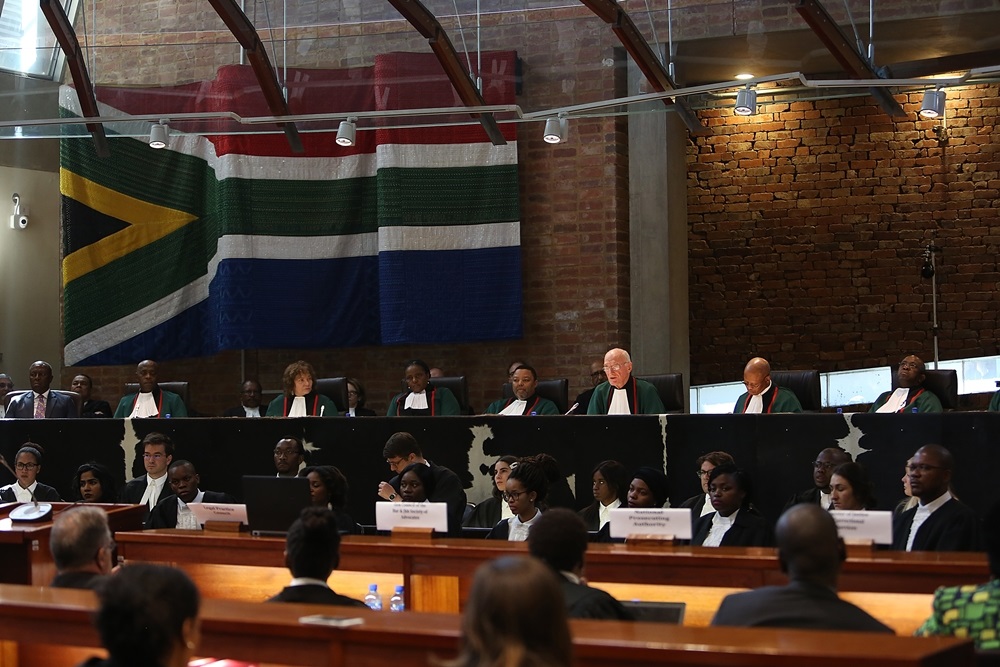
Earlier this week the Constitutional Court ruled that section 19D of the Copyright Amendment Bill can not be passed. Owen Dean writes that in light of this, pressing on with this defective Bill will cause inestimable harm to our law of copyright.
For literally years informed commentators on copyright law have been telling the government that the Copyright Amendment Bill is fundamentally flawed, poorly drafted and misguided in many respects. Alas, none so blind as those who will not see and none so deaf as those who will not hear!
The machinations around the passage of the Bill through Parliament and abortive attempts to make cosmetic improvements to it have led to it being a work in progress for the past five years. It was passed warts and all by Parliament at the end of the previous decade and submitted to President Cyril Ramaphosa for signature and coming into law. Thankfully, he was prepared to listen to a catalogue of some of its more obvious defects, not in the least that it was unconstitutional in certain respects, and he sent it back to Parliament for reconsideration and correction.
Panel beating the bill
The Trade and Industry Portfolio Committee and the House of Assembly have made some amendments to the Bill in an attempt to meet the President’s objections and to overcome some of its defects. The outcome of their handiwork is questionable.
To receive Opinions Weekly, sign up for the newsletter here.
The revised Bill has been passed by the House of Assembly once again and it is now headed for the Council of Provinces for its consideration. Assuming that the Bill sails past this House, it will be sent by Parliament once again to the President for signature. Although the recent amendments have brought about some improvements to the Bill it remains far from being an acceptable piece of legislation. One can scarcely panel beat a wreck of a motor vehicle that warrants being written off and scrapped!
The blind exception
When the Bill reached the President in its first incarnation it contained a section 19D which attempted to grant an exception to copyright in favour of the visually impaired, allowing them to convert written works to braille and other formats easily accessible to the visually impaired without requiring the permission of the copyright owners. This Section, known as the 'blind exception', is a laudable provision which enjoys widespread favour and support in principle. Unfortunately, the drafting and content of the section was faulty and defective, to say the least. Like many other sections in the Bill, it was confused, barely intelligible, in violation of some of the fundamental principles of copyright law, and generally badly drafted. Indeed, the blind exception Section could be regarded as being typical of the Bill as a whole. Its ills are symptomatic of the entire Bill.
Unwelcome criticism
The severe criticisms of the blind exception section and the similarly defective sections of the Bill have invariably been shrugged off and ignored by the powers that be, whether because they do not understand them, are prejudiced against any changes, have been badly advised, are simply incompetent, or they have some other agenda, is not certain. The result is that the Bill remains woeful.
Blind SA, an NGO representing the interests of the visually impaired, became impatient with the glacially paced passage of the Bill through the legislative process. It perceived an urgent need for an operational and effective blind exception. It consequently brought an application to the court for an order reading-in the blind exception into the current Copyright Act. It effectively asked the court to enact section 19D verbatim as it appeared in the Bill into law, notwithstanding the fact that the Bill of which it was a component was still languishing in the legislative process.
READ | OPINION | Owen Dean: How Parliament should redraft the 'horrendous' copyright amendment bill
Blind SA's case found its way into the Constitutional Court in May of this year. The court was requested to use its ample powers to insert Section 19D into the Copyright Act.
In essence, the court had to decide whether Section 19D is good law and ought to be in the Copyright Act pending the Amendment Bill’s completion of the process of running the legislative gauntlet and becoming law, in which case Section 19D would gain currency in the normal course.In their application to the court, Blind SA made out a compelling case for an urgent exception for the blind. Their application was supported by various other NGOs and was not opposed by the government, Parliament or anyone else. It was virtually common cause that the application should be granted and the exception should be created.
The only real question that the court had to decide was whether Section 19D did the required job and was the best means for achieving the desired objective. This called into question the merits and quality of the text of the section and the draftsmanship which lay behind it. The court was assisted in this respect by an outside party who joined the case as an amicus curiae, or friend of the court.
Thus spake the Constitutional court
The Constitutional Court handed down its decision on Wednesday, 21 September 2022. In its judgment, the court found that a blind exception should be granted, and the Copyright Act should be amended accordingly. However, the text of Section 19D does not pass muster and can by no means be approved. In the court's view, it does not contain essential definitions that would make it properly intelligible, is far too wide and ambiguous in its scope, and has other blemishes and shortcomings that render it unfit for purpose.
The court declined to enact the proposed section. Instead, it formulated its own provision, derived from a text that had been submitted by the amicus curiae, and ordered that such provision be read into the Copyright Act. It will become a totally different section, viz Section 13A.
READ | ANALYSIS: Are the drafters of the Copyright Amendment Bill acting in the best interest of authors?
It must be borne in mind that Section 19D, along with the Bill as a whole (which had actually already been enacted by Parliament), had been approved as good law by the Parliamentary Legal advisers, the DTI, the Trade and Industry Portfolio Committee, Parliament and the group of academics professing expertise in copyright advising them, in the face of severe criticism by copyright cognoscenti. This criticism had been dismissed or ignored by all these persons. Yet the highest court in the land has found the section unusable and wanting, and has rejected it. What does this say about the quality of the section and the Bill of which it is representative and the competence of its sponsors?
The ineluctable conclusion that emerges from all this is that concrete evidence and confirmation of the validity of the severe criticism of the Bill and its lack of worth as a piece of legislation has now come to the fore. This from no less an authority than the Constitutional Court. Surely such confirmation is a good ground for following the advice that the cognoscenti have been giving all along, namely that the Bill should be withdrawn and be referred to a truly expert committee for redrafting. This wake-up call by the Constitutional Court should be heeded.
Pressing on regardless with a clearly defective Bill will cause inestimable harm to our law of copyright and to a lot of those who create original works.
- Owen Dean is an Emeritus Professor at the University of Stellenbosch, a specialist copyright attorney and author of 'Dean: An introduction to copyright law'.
*Want to respond to the columnist? Send your letter
or article to opinions@news24.com with your name and town or province. You
are welcome to also send a profile picture. We encourage a diversity of voices
and views in our readers' submissions and reserve the right not to publish any
and all submissions received.
Disclaimer: News24 encourages freedom of speech and the expression of diverse views. The views of columnists published on News24 are therefore their own and do not necessarily represent the views of News24.




 Publications
Publications
 Partners
Partners























